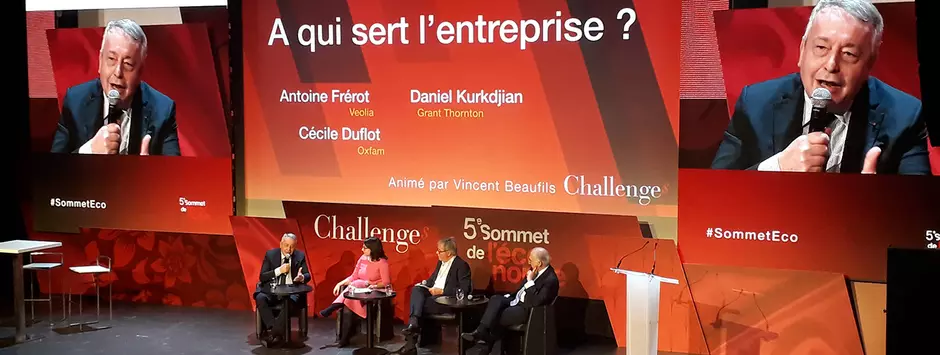On 6 and 7 December at the Palais de Tokyo in Paris, business leaders and politicians came together to discuss the theme "Reconciling the two Frances". The debates focused on three divides - societal, entrepreneurial and digital - and on the necessary reconciliation between cities and territories.

In a rapidly changing economic and social environment marked by the disruption in relations between civil society and business, companies are increasingly being challenged about their contribution to the public interest, their willingness to serve all their stakeholders, not just a few of them, and their ability to prepare for the long-term.
"We must devise a new business paradigm"

New collective issues which the public authorities cannot tackle alone, are emerging: protecting the environment, the consequences of globalization, and getting young people into work. Businesses should also be the source of some of the solutions. In this case, they then serve the general interest and not just special interests.
The "raison d'être of business", for a new definition of economic success
In France, the PACTE law, passed on its first reading in the National Assembly, proposes that businesses be managed with "due consideration of the social and environmental issues" and that the corporate purpose should clarify its raison d’être.

